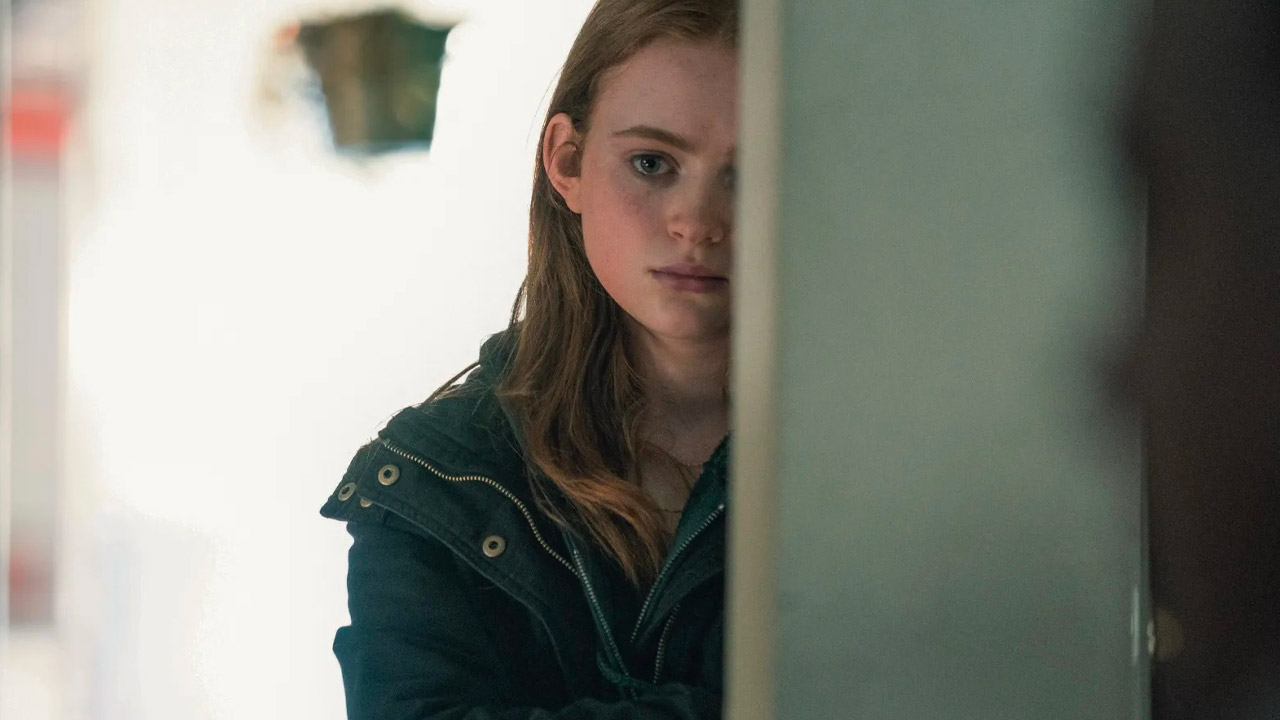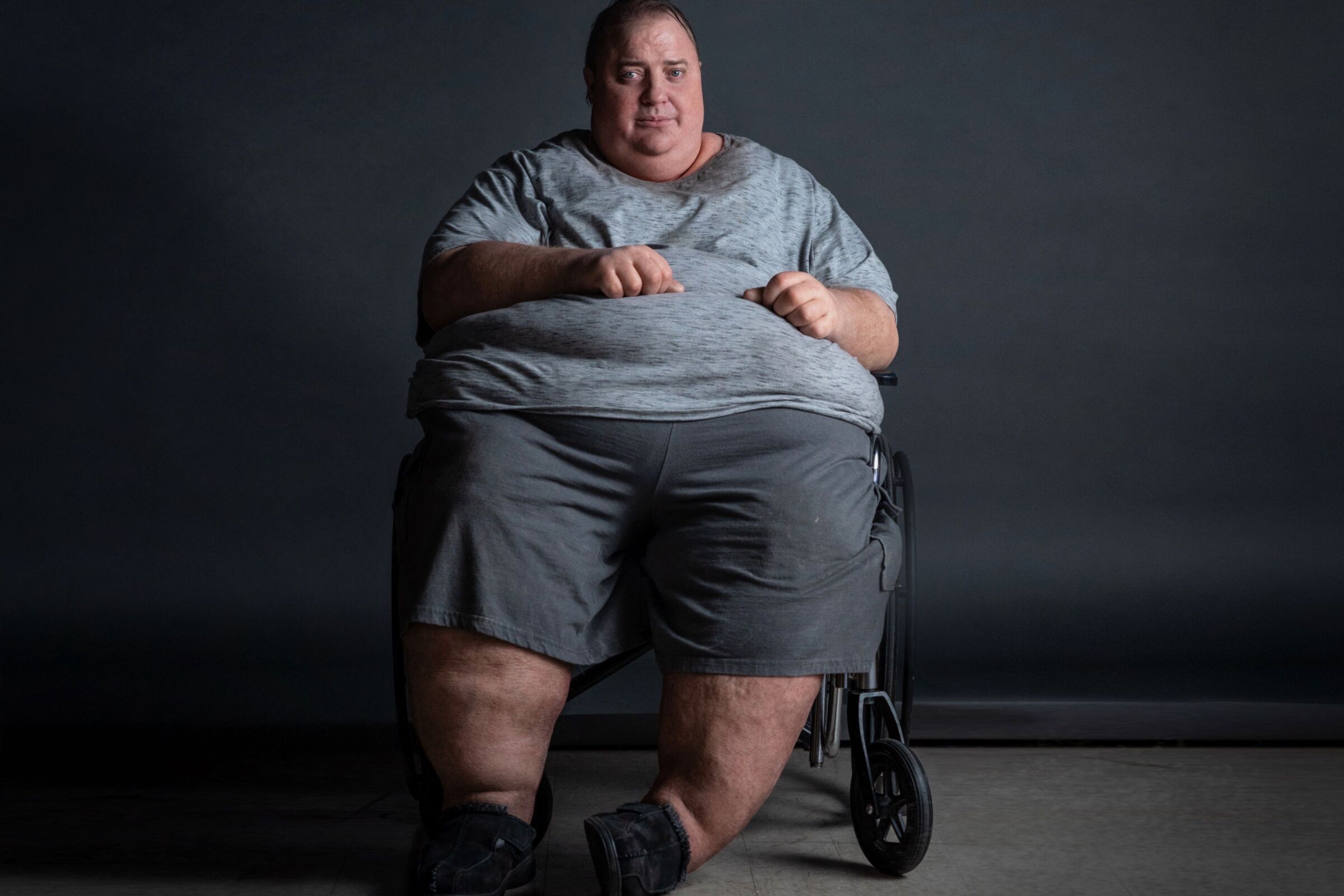Charlie: I need to know that I have done one right thing with my life! ~The Whale (2022)
Let me say right off the bat that this film is absolutely not for children, consecrated virgins, ordained men or any naive, sensitive, or very innocent souls, a fact which is discernible from the first five minutes of the production. I was back and forth with myself trying to decide whether or not to review it for the blog. When I saw the left attacking it, however, I realized that they must have seen in it what I also saw: the story of a man deeply sorry for abandoning his wife and child. For the Woke Among Us, someone feeling bad about breaking up their nuclear family for an alternative relationship is anathema. But The Whale is just that; it is about a man destroying himself out of grief and remorse for sins that cannot be undone, and to which he retains an attachment. It is about the damage visible in his teenage daughter due to the fact that he preferred the company of his male lover to being with his family. Because his conscience is not totally dead, he has embraced the morbid and twisted penance of eating himself to death. And it is due to the reality of grace acting upon Charlie's soul that he is finally able to ask for forgiveness.
From Literary Hub:
The Whale follows a reclusive online English instructor named Charlie (Brendan Fraser), who is extremely overweight and suffering from congestive heart failure after letting things “get out of control,” as he says, in the aftermath of his partner’s death. He is saved from an initial cardiac episode by a young missionary, Thomas (Ty Simpkins), who happens by and acquiesces to Charlie’s urgent desire for Thomas to read aloud from an old student essay on Moby-Dick to help lower Charlie’s stress levels. Charlie’s nurse-friend Liz (Hong Chau) predicts that Charlie will not make it through the weekend.
As he faces his own mortality, Charlie embarks on a mission to redeem himself in the eyes of his estranged teenaged daughter, Ellie (Sadie Sink), who is on the verge of flunking out of high school. The strengths of each of these actors—Fraser’s grace, Sink’s fieriness, Chau’s brutal honesty, Simpkins’s lost soul—play off each other in surprising and witty ways, making each character’s convictions and frustrations and longings all the more passionate and real.
Character development in The Whale is based on pairs: Missionary and Heretic, Science and Religion, Optimist and Pessimist, Overweight and Underweight. On a more fundamental level, these are not doubles at all: each character is fighting the same battle as Charlie, each with their own vice: binge eating, evangelism, alcoholism, truancy. They are different takes on the same old story, adding depth and universality to Charlie’s tale. These, the true whales of the story, distract the characters from their senses of abandonment and grief, their quests for love and honesty and acceptance. (Read more.)
What makes The Whale most memorable is Brendan Fraser's unforgettably mesmerizing performance as the 600 pound Charlie, whose sensitive and nimble mind make him innately lovable in spite of the grotesque specimen of humanity he has purposefully become. According to AP News:
Brendan Fraser has earned lots of Oscar buzz for playing Charlie, allowing his signature puppy dog face to remain despite a massive body suit and swelling prosthetics. And why not? It is one of the most moving performances in years, full of humanity and a redemptive triumph for an actor who hid his talent in quickly forgotten films like “Blast from the Past,” “Hair Brained” and “Airheads.” The whole cast is perfect, from Sadie Sink as Charlie’s spiky daughter, Hong Chau as his foul-mouthed nursing angel, Ty Simpkins as the missionary with a hidden past and Samantha Morton as his ex-wife with simmering anger and yet still love. There are steady references to Herman Melville’s “Moby Dick,” which gives the film the title and its doomed vibe.
Charlie has ballooned ever since the death of his same-sex partner, who apparently willed himself to death by wasting away in starvation after their relationship was condemned by his church-leading father. Charlie has apparently decided to die the opposite way....But body weight is not what the writer and director want to focus on here. It’s more the weight of guilt and love and faith. “I just want to know I did one good thing in my life!” Charlie shouts. One feels that the underlying issue in “The Whale” could have been obesity as easily as cancer or alcoholism or a blood disorder. Hunter is exploring salvation, redemption, determinism and family.
The play has been sharpened for the screen but there’s no escaping the fact that it is rooted inside Charlie’s Idaho apartment, which he shuffles about in on a walker or later a wheelchair. This doesn’t make for sweeping cinema. Sometimes the apartment feels confining like a ship, adding to the Melville theme.
Some of the filmic attempts are forced, like the symbolically heavy bird that Charlie feeds outside his window, the three times actors rush to leave the apartment only to stop and turn back, and the heavy rain that builds as the film’s climax nears. But this is a film that stays with you and changes you. It is heavy, indeed. (Read more.)
It is heavy, because when a parent deserts their family in order to pursue their personal happiness, the effects on the children can be unalterable. Ellie is the archetype of the angry teen, determined to destroy herself as the best revenge upon a neglectful parent. But Charlie is given hope when he hears of Ellie going out of her way to help the young missionary to find his way home. He realizes that she is not totally destroyed; that she cares about other people, and thus has the makings of a good and unselfish person. Her voice and expression when she finally exclaims, "Daddy!" conveys a poignancy that causes the nihilism of the rest of the drama to melt away.
 |
| Sadie Sink as Ellie |


















No comments:
Post a Comment